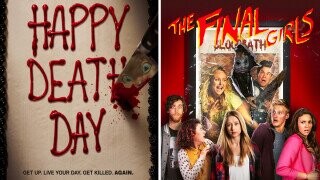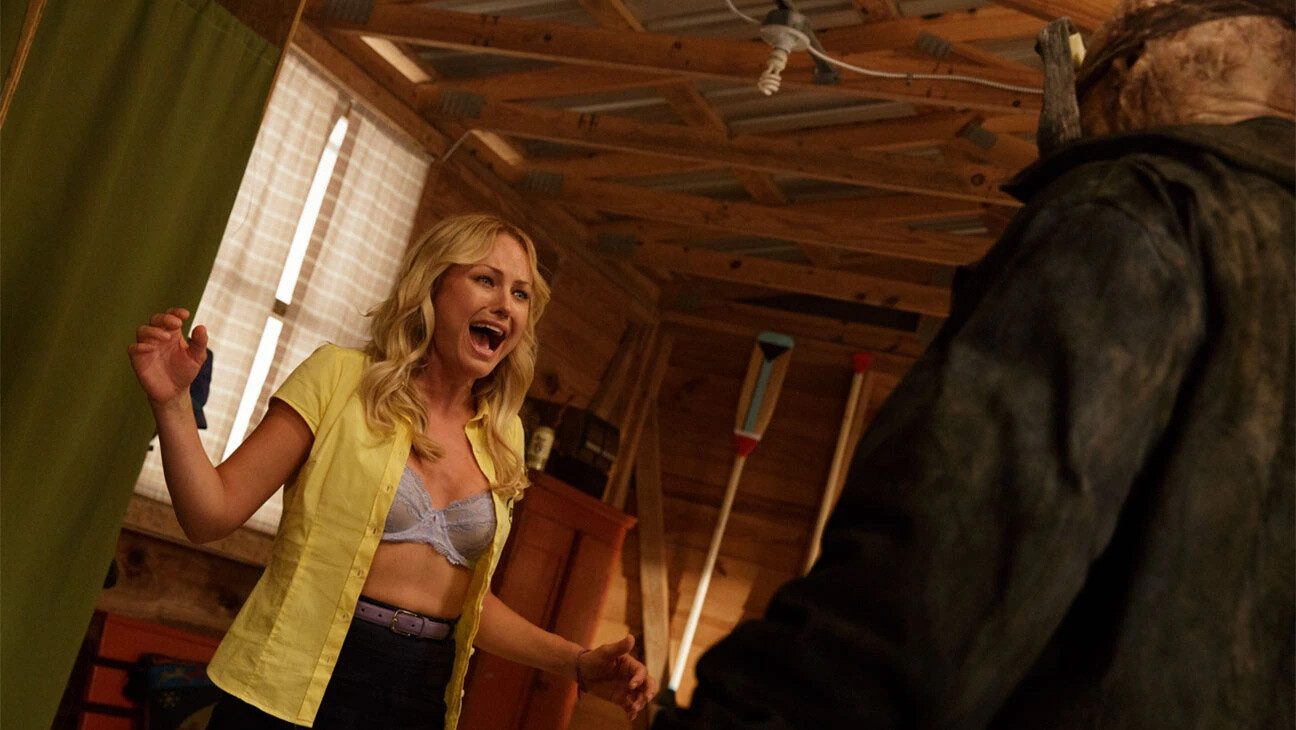How Time Loops Became Slasher Movies' Secret Weapon

Storytellers and moviemakers just love messing around with time, and why not? When it's done right, it's the surest way of getting that proverbial "legend" or "iconic" sticker stuck onto a movie. That, and having Bill Murray star in it, we guess. Groundhog Day paved the way for time loop films to become a genre all by itself, so it's not too surprising that the subgenre eventually found its way into the horrors.

Universal Pictures
Listen, I'm not saying every single time loop slasher is the best or even works, but the subgenre has proven to be generally successful when paired with some psycho stalking killer out to slash a person. For instance:
Happy Death Day Not Only Cemented The Groundhog Day Concept In Horror But Also Revitalized The Slasher Genre
Happy Death Day is a comedy horror about a college girl named Tree who wakes up every morning and experiences her birthday over and over again because, every night, she gets murdered by a guy who looks like a gross giant baby with a single tooth hanging from its mouth like an icicle.
It's wild and mostly delightful, and while it has some third act issues, the movie has enough original ideas stacked on top of that surefire Groundhog Day concept. The thing about Groundhog Day-type movies is this: It gives the protagonist the chance to selfishly work through their own troubles or traumas before turning their awareness to those around them so they could ultimately become a better person. It's about how self-involved we become when we're stuck and how no growth can happen in that bubble. Or, you know, maybe it's just about the mundane repetition of life and how funny we are at trying to give it meaning.

Universal Pictures
Audiences, in general, like the concept because it comes with a sense of hope. In the whole Eat-Sleep-Repeat scenario, a character has the chance and opportunity to reset their day, every day, and get a do-over until they can figure out how to make things work. The tedious cycle is broken when they've managed to work through their issues and sort out their mess and comb their hair like a fully functional person.
And that fits in pretty well with the horror genre at large. Most all horrors are centered around some kind of trauma or terrible issue that needs to be addressed. In Tree's case, she's recently lost her mother, and, given that she's still in quite the delicate phase of a growing young woman's natural development, she's lashing out and being selfish because she doesn't know how else to cope with the loss. So using a time loop — and one that literally kills her because she can't get unstuck — works well in parallel with her journey of discovering maturity and learning how to not be a giant douche to everyone just because she's sad.
The Final Girls Did It First (And Went Meta)
I've written about The Final Girls before because this comedy-horror meta slasher with a side order of time loop and an extra helping of retro vibes is criminally underrated, and all the fun:
Yes, that is the jam right there. The Final Girls does a lot of things: It makes fun of stereotypes introduced back in '70s horror and perpetuated by almost every big slasher film ever since. It makes fun of slasher audiences who always think they're smarter and would fare better than all the dumb characters on screen. On top of that, it's also a sincere and moving story about the bond between a girl and her mother. Specifically, a girl and her mother who once starred in an '80s slasher where everyone who humped had to die.

Stage 6 Films
This movie should get props for a lot of reasons, but especially because it uses the time loop trope in an original and creative way. Max, the girl who lost her mother in a car accident, goes to a screening of the retro slasher Camp Bloodbath — the movie that her mom starred in before she had Max. A chain of events causes Max and her friends to get sucked into the actual movie, where they become trapped in the film's 92-minute running time that plays on a continuous loop. It's a clever gimmick that the film utilizes well, and the rest of it plays out like you'd think a time loop slasher movie would: With fewer alarm clocks and more blood-curdling screams.
Why The Time Loop Subgenre Goes Best With Comedy Horror (And Should Be Avoided In More Serious Stories)
Meta in time loop horror works. Pairing a time loop killer with a young woman's grief of losing her mother also works (coincidentally, both these films have that very same premise). But this subgenre is best left to these kinds of double-meaning stories and playful 'What if' films and should probably be avoided when it comes to more serious movies with deeper metaphors. Lucky — the 2020 horror film that sees a self-help author get attacked in her home night after night — had a good idea that didn't quite work because, unfortunately, the time loop created a watered-down effect.
The film wanted to say important things about misogyny and gender-based violence and how even women can struggle to understand it all, but while the repetition clearly tried to illustrate what life is like for a woman day in and day out, it almost got in the way of some of its more complex points. It's a movie where you could simply take out the time loop concept, just have a stalker slasher, and nothing would be lost. On the contrary, it could possibly have packed a greater punch.
It's also why slashers like 6:45 and Triangle had some neat ideas but ultimately didn't really work. It was too serious, too slow, and too psychological. These are movies that want to be horrors but end up being light psychological thrillers that focus more on pulling clever through-lines and creating mirror images than building tension through beats and pacing. Ironically, they don't utilize Timing in film well enough.
Of course, a lot of this is just my opinion. It seems, however, that if you want to make a slasher about a young person grieving the loss of a parent, you can't go wrong using a time loop. Maybe even get Bill Murray to make a cameo. That'd be pretty meta.
Zanandi is on Twitter and also on that other platform.
Top Image: Stage 6 Films